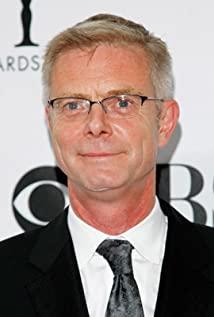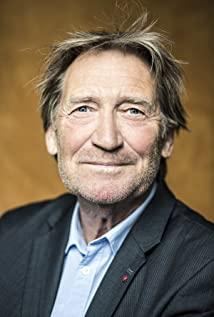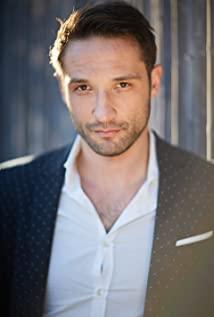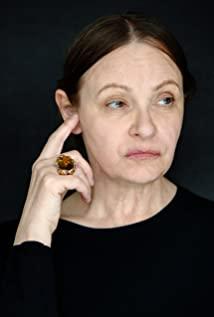For those who have not read the original novel, "The Reader" has insufficient plot and advancement, while for those who have read the original novel, it basically revisits the story with a priori experience. Facts Above, if the original novel takes love as the skin and morality as the core, then the movie is basically a love story inside and out, a story about wanting to love but not being able to love, which is extremely tragic, although I feel that The performance of the film is limited. I was quite moved when Michele unexpectedly met Hannah again in court in the second act. In the second half, I also burst into tears from time to time. Michel, played by Ralph Fiennes, actually has a very rich inner world, but due to space limitations, the film's account of his past is basically deleted to the point that it can no longer be deleted. In fact, after meeting Hannah again, Michelle lived sadly with Hannah's "secret that couldn't be told". This sadness did not refer to the physical level, but the psychological level of torture and contradiction. So, He finally got divorced and lived alone. This love story is very tragic because of the inner child Michel. When he was a teenager, he once asked Hannah: "Do you love me?" Hannah nodded slightly for unknown reasons. For the summer when we didn't want to be too much and just made love together, whether there is love between 16-year-old Michelle and 37-year-old Hannah, we, as bystanders, are somewhat in a trance, but what is not love between them? Woolen cloth? Perhaps a purely physical relationship after all is in a sense a perfect form of love. And in fact, their love didn't stop there. Hannah's resolute departure showed that she was not just with Michelle out of her own consideration; and later, Michelle recorded readings for Hannah, who was imprisoned for life, for many years. It's not just about sympathy either.
Why did Hannah ask Michelle to read to him constantly? Because Hannah is completely illiterate and has no ability to read or write at all. And this is also the biggest secret in her heart, she must not let anyone know this, because in her opinion, it is shame. So after she was brought to court, the judge took out a proof of the work report of the concentration camp guards. The other five female guards agreed that Hannah wrote it. Just when the judge wanted to examine her handwriting, Hannah recognized it. She would rather take a big sin than let her secret be known. Michele knew this, but couldn't do anything about it. If he told the truth, Hannah might be spared a life sentence, but she might not be able to face the society, let alone face him. So, he was helpless and willing to be her accomplice.
Why is Hannah going to court again? This is probably the deeper meaning of the story. Hannah used to be one of six guards in a concentration camp for Jewish women during World War II. During a transfer process, almost all 300 women in this concentration camp were burned alive by accident. Only one mother and daughter survived. And write his own experience into a book. So the six female guards at that time were all charged in court, and the other five seemed to have lived a life of well-being, only Hannah, who had no relatives and no reason, and perhaps only Hannah, who had no ability to read or write. So, almost all the sins were added to her. The judge asked, why do you want to be a guard. Hannah said, because I knew it was hiring. The judge asked why you didn't open the lock when there was a fire. Hannah said that because 300 people rushed out, there would be chaos, and once it was out of order, it was impossible because I was the guard. This remark sounds really inhuman in hindsight, but when you think about it carefully, how many concentration camps were there, how many guards were there, how many people murdered and committed more unbearable crimes, and they, or the judges in the court, , a jury member, or anyone present. I don't mean to say that Hannah is innocent, but to this woman, who has almost no consciousness, we can't help but think of what Orendorf said at the Nuremberg Tribunal: I am nothing more than a colossal state machine. A paltry cog. It is the author who positions Hannah's identity as a person who is almost "incompetent" in the modern intellectual sense, and in her the question of guilt and innocence is all the more paradoxical. In addition to the intense scene in the courtroom, the scene where Michelle visits Hannah on the eve of his release from prison is also very meaningful. For Hannah, after years of incarceration, she kept listening to tapes and slowly developed a little literacy, and she could finally put down her "secret" to face Michael and others; Shire, however, could not face Hannah calmly because of the lives of 300 Jews. There is no doubt that Hannah was overjoyed at the moment of meeting. Although she was too old, Michelle, who was sitting opposite, was a little embarrassed. He asked Hannah, have you thought about the past? For this question, Hannah was very abrupt, but she told the truth, it doesn't matter if I think about it or not, it doesn't matter how I think about it, everyone is dead. The last meeting ended in desperation. A week later, Michael came to get Hannah out of prison, but Hannah had hanged herself the day before, leaving her little savings to her surviving daughter. Michel can only endure the sadness of fulfilling Hannah's last wish, and record the story, leaving everything to the morality of human beings to evaluate. It is also difficult for us to express precisely what makes
Kate Winslet does a great job in the courtroom and the last two scenes in which we see that the individual is ultimately powerless when it comes to love and justice, be it ignorant like Hannah, or Know as Michelle.
View more about The Reader reviews











